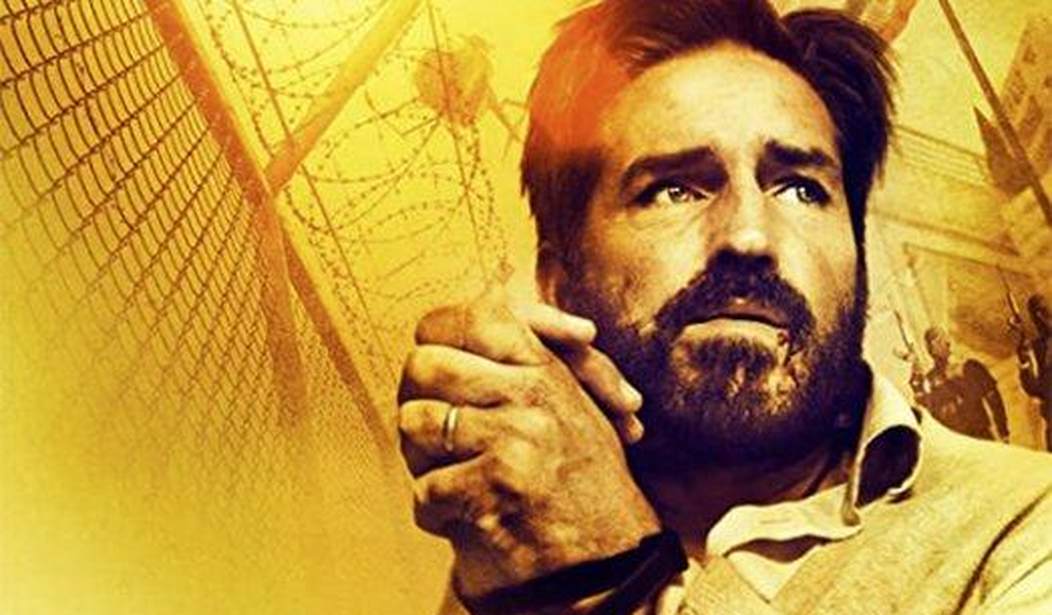It is a staple of the Muslim victimhood industry to complain that Hollywood frequently features Muslim terrorist villains, and seldom depicts Muslims as anything other than terrorists. Reality is just the opposite: can you think of even one major motion picture that featured Islamic terrorists as the villains? In a typical instance, Tom Clancy’s The Sum of All Fears, jihadis were the villains, but when the book was made into a movie, the villains were changed to neo-Nazis. Moviemakers routinely shy away from depicting the grim reality of jihad violence and Sharia oppression of women and others. But not Cyrus Nowrasteh.
Nowrasteh, who gave us the eye-opening and heart-rending 2009 film The Stoning of Soraya M., which focused on an honor killing, has written, directed, and produced the new movie Infidel, starring Jim Caviezel, Claudia Karvan, and Hal Ozsan. Infidel is as startling, on many levels, as it is gripping. Caviezel plays a Christian blogger who is kidnapped by a Hizballah cell (headed up by a cheerfully villainous and thoroughly engaging Ozsan) and taken to Iran.
That this is the storyline is in itself remarkable. Were Infidel the production of virtually any director besides Nowrasteh, Caviezel’s Christian character Doug Rawlins would turn out to be stupid, evil, or both, while Ozsan’s Ramzi, even while being a Hizballah kidnapper, would be depicted as wise, noble, or even heroic. Muslims are victims of Islamophobic, racist, redneck American yahoos — that’s the general Hollywood narrative, played out in innumerable films.
Infidel instead opts to be more realistic, recalling actual events that seldom gain Hollywood’s notice, such as the 1987 kidnapping of journalist Charles Glass by Hizballah in Lebanon. Infidel unflinchingly portrays the gleeful brutality and inhumanity of Rawlins’ captors, as well as his own struggles to maintain his Christian faith amid torture and isolation. Amid all this, the film’s realism is thoroughgoing: once the movie’s perspective was established, it was refreshing to see Caviezel portray Rawlins as alternately angry, afraid, and confused, rather than as a plaster saint, above the fray and singing hymns even as he is being beaten and verbally abused.
Nor is that all. Besides being one of the few feature films to portray the reality of jihad terror in a realistic manner, Infidel is also one of the first, if not the first, major motion pictures to depict the pervasive but seldom-noticed reality of secret Christians in majority-Muslim countries, as well as the Sharia death penalty for leaving Islam, honor killings, and even the “Islamophobia” scam. Early in the movie, before Rawlins has left the U.S. and been kidnapped, investigators are searching the home of Javid, a Muslim friend of Rawlins. They find that Javid’s basement is filled with unmistakable evidence that he is a jihad terrorist, or at very least a terrorist sympathizer. All the while, however, a lawyer does her best to impede the search, proclaiming that it is “Islamophobia” to think that anything is amiss with Javid at all.
That is a recurring reality of life in America today: for years now it has been routine that any honest examination of jihad terror and Sharia oppression, and any effort to impede it, is “Islamophobic” and hence to be eschewed by all decent people. Up to now, the closest movies got to this phenomenon was their producers’ own fear of being tarred with the “Islamophobic” label if they got too close to depicting jihad violence in an accurate manner, or at very least without some kind of assurance to the audience that Islam is really not like that, but gentle, peaceful, and altogether benign. For a film to show how the “Islamophobia” weapon is actually wielded in order to stymie counterterror efforts is nothing short of astonishing.
But Infidel is much more than the sum of the topics that are usually ignored or obfuscated, and that it dares to depict. Infidel is, above all, a terrific story, well-acted and superbly presented – a story of love, of passion, of hatred, of commitment, of self-sacrifice, and much more. I would have written that they don’t make them like this anymore, but clearly, as long as Cyrus Nowrasteh is writing, directing, and producing movies, they still do.
Robert Spencer is the director of Jihad Watch and a Shillman Fellow at the David Horowitz Freedom Center. He is author of 21 books, including the New York Times bestsellers The Politically Incorrect Guide to Islam (and the Crusades) and The Truth About Muhammad. His latest book is Rating America’s Presidents: An America-First Look at Who Is Best, Who Is Overrated, and Who Was An Absolute Disaster. Follow him on Twitter here. Like him on Facebook here.










Join the conversation as a VIP Member